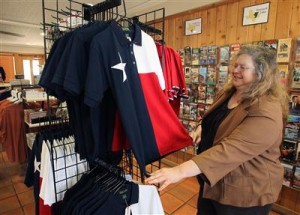

(Waco Tribune-Herald)
By Ray Perryman
Waco Tribune-Herald via Associated Press
The issue of school start dates goes beyond every kid’s desire for more summer fun; there is in fact a very real economic component to the decision. We recently looked at the implications of moving the school start date earlier in August, focusing on losses from reduced tourism.
First, a little background: The timing of the start date for Texas public schools has been intensely debated for decades. In the mid-1980s legislation required the beginning of school to be after Sept. 1. Subsequently, schools were allowed to start any day during the week in which Sept. 1 fell, and in 1990 (the last year that version of the uniform start date rule was in place), the most common start date was Aug. 27.
The law was repealed in 1991; by 1999 the most common start date was Aug. 16, with many districts beginning earlier (Aug. 9 for several of the state’s 50 largest districts, and even Aug. 2 for one of them). The mid-2000s saw a return to a uniform start date, which is now set at the fourth Monday in August. Recently, however, the idea of earlier start dates has again surfaced. There are a variety of issues and opinions on this matter, but the economic aspects are quite clear.
One industry group notably affected by moving back-to-school dates earlier in August is tourism. During August, tourism spending is at peak levels and is significantly higher than during May and June.
Travel is an important source of economic activity in Texas, with tens of billions in spending and hundreds of thousands of jobs. Related tax receipts to the state and local governments are also substantial. Texas residents generate almost half of all tourism spending, according to the Texas Economic Development & Tourism Office. Shortening the summer break reduces time for family travel, shrinking spending for accommodations, entertainment, dining and other purchases.
Based on the differential between the level of leisure travel in August and that in the May/June period or other times of the year, we have measured the associated losses for the Texas economy and found them to be substantial. We estimated that each foregone summer travel day in August relative to a day in May/June causes a reduction of $35.2 million in direct tourism spending, leading to total lost spending (including multiplier effects) of $115.0 million. Each day lost in August relative to generic days at other times (such as Christmas holidays, for example) involves about $35.8 million in direct tourism reductions and $117.1 million in overall spending losses (when multiplier effects are considered).
Given these daily losses, every week earlier the average public school start date moves causes a yearly reduction in business activity in Texas of $805.2 million in spending and $431.8 million in output (gross product), as well as 5,872 jobs. These losses are concentrated in tourism-oriented segments of the economy, but ultimately ripple out through all industrial groups.
All of the state’s regions would experience reductions in output (gross product) ranging from an estimated $1.7 million to $127.0 million per year depending on population levels and tourism destinations. Output (gross product) losses for the state’s metropolitan areas range from $1.6 million to $99.2 million per year.
Foregoing this economic activity also reduces associated tax receipts. Each day earlier the average school start date moves costs the state about $7 million in net overall tax revenue, while local governments lose over $2 million per day. Moving the school start date a week earlier would lead to an annual reduction in taxes of $42.3 million to the state and $16.3 million to local governments.
Another aspect of earlier school start dates is incremental spending necessary for cooling during August. Based on average patterns and usage across the state over the past four years, it is estimated that daily power costs are approximately 17.8 percent higher in August than in May/June and about 45.5 percent higher than at other times of the year. The addition of a week in August would thus increase overall annual power costs by 0.52 percent compared to May/June and 0.98 percent compared with other periods during the school year. While results would vary depending on the circumstances in each district, the typical pattern reflects significant costs over and above the loss in tourism activity.
Another economic downside of shorter summers is the effect on summer jobs. Students have fewer days to work, and employers have less access to this relatively inexpensive segment of the workforce. Some parent groups advocate for longer summers using quality-of-life arguments. Also, students have fewer options for enrichment activities such as summer camps.
Whatever the merits of other issues and concerns, moving the school start date earlier in August would have a notable economic downside. Travel and tourism would be negatively affected (and, therefore, state and local tax receipts). Electricity costs to schools would likely be higher and summer options for students would be curtailed. The economic aspect of school start dates is clearly a relevant consideration that should not be ignored in the decision process.
Internationally known economist Ray Perryman is CEO of Waco-based The Perryman Group. He was honored as Texan of the Year by the Texas Legislative Conference in 2011.





